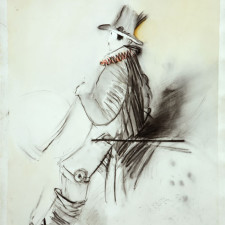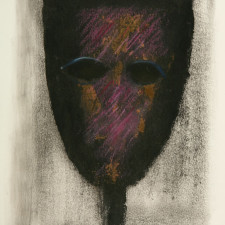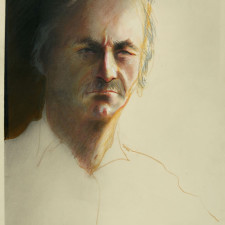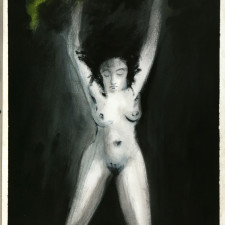Press Cuttings “The Third Day” at The Gate
Two Godot-Boys, the inevitable debt to the creator of Fluther, Joxer and the Paycock; the inevitable Mountjoy Square setting (interestingly noted on the programmes as “a two-per-front”), and for the first couple of minutes of “The Third day” (Gate Theatre) one is inclined to say that John Kelly, its author, is following in the steps of the Old Master, as so many others have tried to do. Kelly’s little tragic-comedy of the Dublin slums, however, gets closer to the truth, and closer to the best O’Casey, than most of the previous attempts. His two out-of-work philosophers, Ned Doyle and Pat Maher, come from Dublin and the North. Both, in their way, are idealists; while Doyle is a comedy-fantasist as well – a Mountjoy Square Mitty. This part gives John Molloy a wonderful chance to show his very versatile talents, a chance which Molloy exploits to the full, but never selfishly to the disadvantage of his fellow-players, in comedy, tragedy and mime. His performance alone makes the Gate well worth a visit, and, on the comic side, his interlude with four Undertakers and one coffin is memorable. Aidan Grennell plays Maher most admirably, too, and Irish Lawler, though she over-punches a bit, catches the appalling destructive ignorance of the trollop that she represents quite well.
O’Casey’s “Juno” theme – “Take away our hearts of stone …” is echoed by Kelly’s Doyle, whose pleas for charity and tolerance “One word could have saved the world”, is as unheeded as was Juno’s. The writing is never uneconomical; the direction, by Yvonne Voigt, is intelligent, and as sparse as the setting, by the author, and for all its dark end, the play suggests a hint of hope that people will remember, one day, that love is more important that hate. Elizabeth Davis and Derry Power, the seduced girl and her betrayer, also keep cleanly within the bounds of over-playing parts that could too easily be melodramatised.
“The Third Day” is preceded by “Shapes”, a one-acter, also by John Kelly. This one is very definitely under an obligation to Samuel Beckett, but it’s none the worse for that, and is most competently done by Aidan Grennell, Des Nealon and Derry Power.
K. (Seamus Kelly), The Irish Times, 1961




